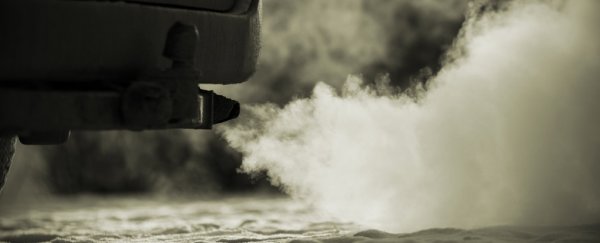Controversy has erupted after reports revealed German carmakers have collaborated on experiments in which monkeys and human participants were intentionally exposed to toxic diesel fumes.
The secret experiments, which took place in both the US and Germany, were part of a 'clean diesel' research initiative funded by Volkswagen, the world's largest automaker, with BMW and Daimler. Public outcry over the revelations has been swift.
"These tests on monkeys or even humans are in no way ethically justified," said Steffen Seibert, spokesperson for German Chancellor Angela Merkel.
"The indignation felt by many people is completely understandable."
The story broke after a report in The New York Times detailed a previously unknown 2014 experiment commissioned by the European Research Group on Environment and Health in the Transport Sector (EUGT) – a now-disbanded research institution funded by the three carmakers.
Among other studies it oversaw, EUGT chose the Lovelace Respiratory Research Institute in Albuquerque, New Mexico, to conduct an experiment that might ostensibly show how harmless diesel fumes were: by forcing a group of monkeys to inhale diesel exhaust for 4 hours.
The animals, 10 cynomolgus macaque monkeys, bred exclusively for medical experiments, were held in chambers into which exhaust fumes from a Volkswagen Beetle running on a treadmill was directly pumped.
To keep the animals calm and occupied during the experiment, lab workers had set up a TV the animals could view from their gas chambers.
"They like to watch cartoons," one of the Lovelace researchers, Jake McDonald, said in a sworn deposition last year in a lawsuit brought against Volkswagen in the US by Volkswagen diesel owners.
What McDonald and the other researchers didn't know at the time, though, was that the whole experiment was actually a sham.
The Beetle they'd been supplied with was part of the 'dieselgate' emissions cheating scandal uncovered in 2015 – in which some 11 million VW cars around the world were fitted with illegal 'defeat devices' capable of masking levels of toxic nitrogen dioxide pollution pumped out by the car's exhaust.
When the cars detected they were being examined for emissions testing purposes, pollution controls throttled back the nitrogen dioxide output – whereas in regular use on the road, the engines would output diesel fumes at levels that breach emissions standards.
What this means is, in the 2014 experiment, the monkeys thankfully weren't getting a full blast – not that they had it easy.
In a separate, comparative test, they also had to inhale fumes produced by an older-model 1999 Ford diesel pickup – before being anaesthetised and intubated, then having their lungs washed out so their bronchial tubes could be examined.
In a statement on Saturday, Volkswagen said it "distances itself clearly from all forms of animal abuse", but that was before German media produced new reports of similar experiments involving human participants.
These tests, conducted by Aachen University in Germany in 2013 and 2014, and also commissioned by the EUGT, saw 25 young healthy adults inhale varying concentrations of nitrogen dioxide for several hours each.
While it appears the university secured ethics approval to conduct the research – in addition to written consent from all those who took part – it's just another black mark against the carmakers implicated in the diesel emissions scandal, especially with what we know about how bad nitrogen dioxide is for us.
"Vile," is how German environment minister Barbara Hendricks described the revealed experiments.
"That a whole branch of industry has apparently tried to discard scientific facts with such brazen and dubious methods makes the entire thing even more horrific."
